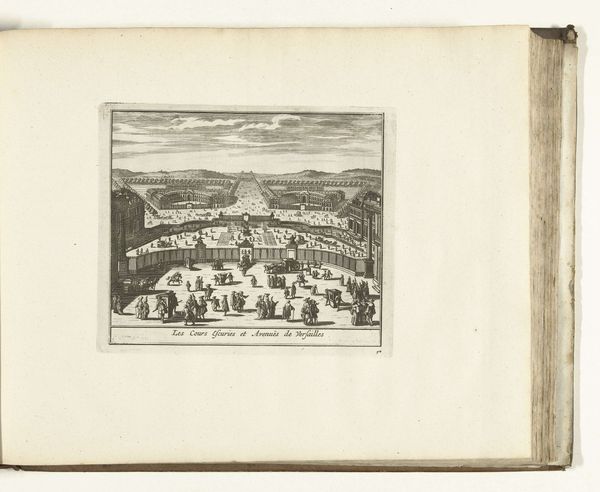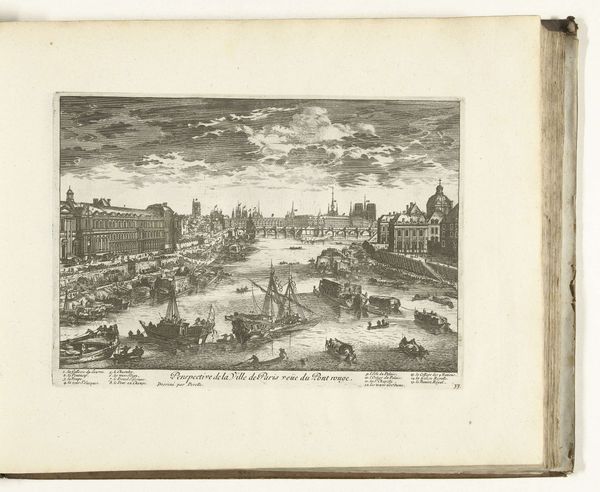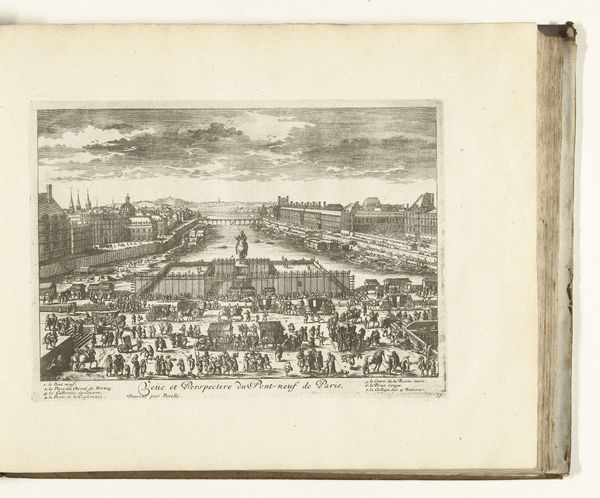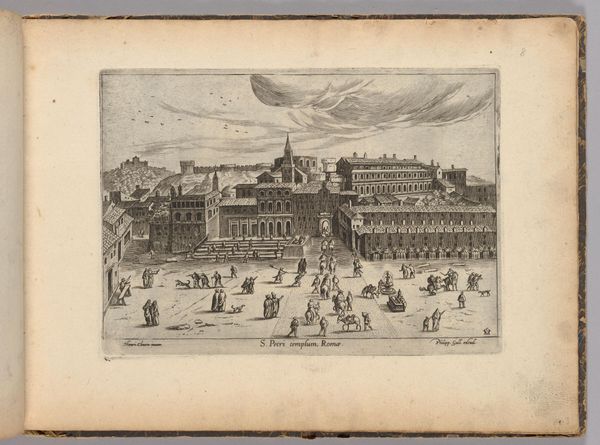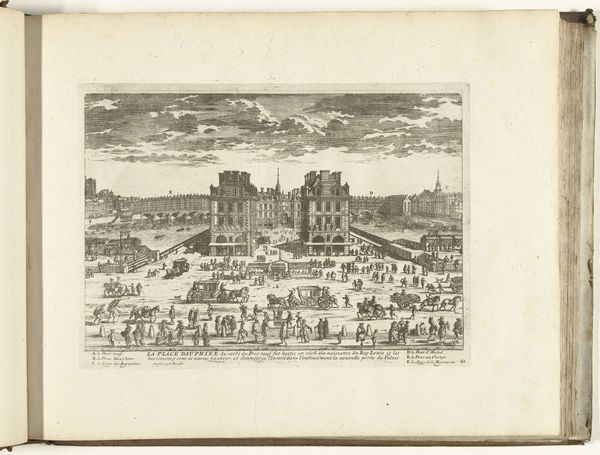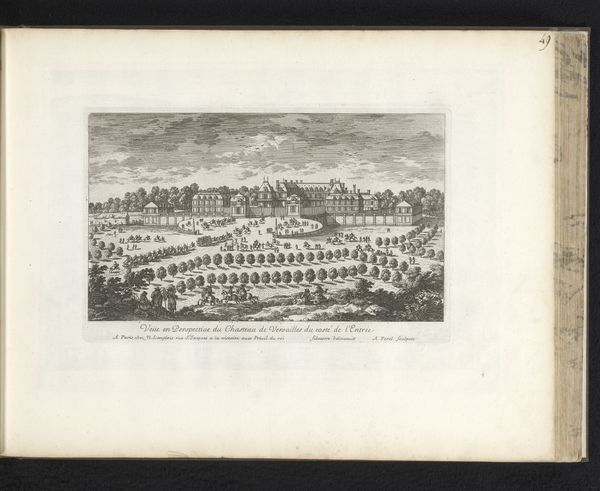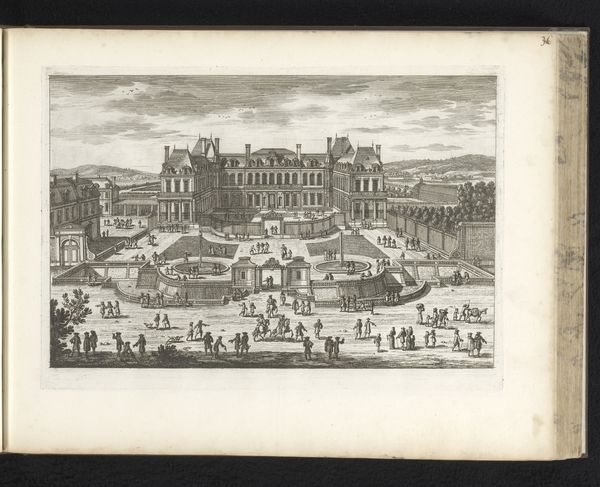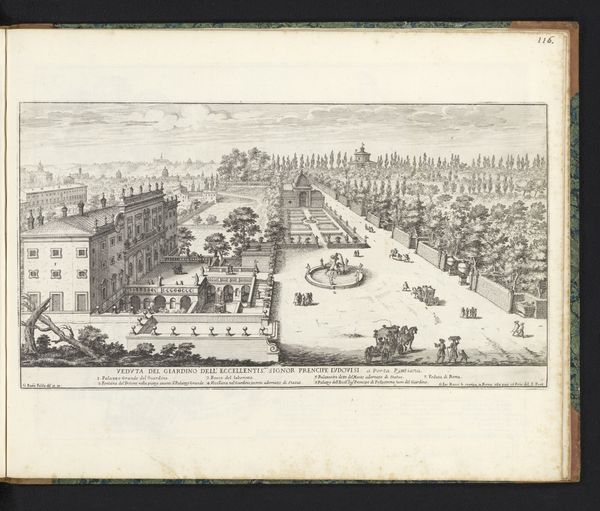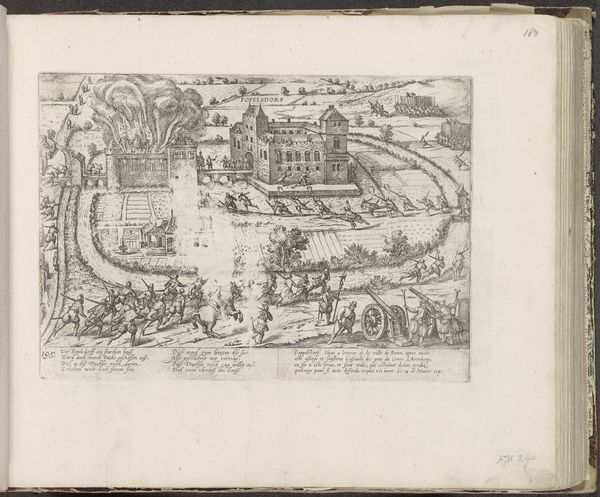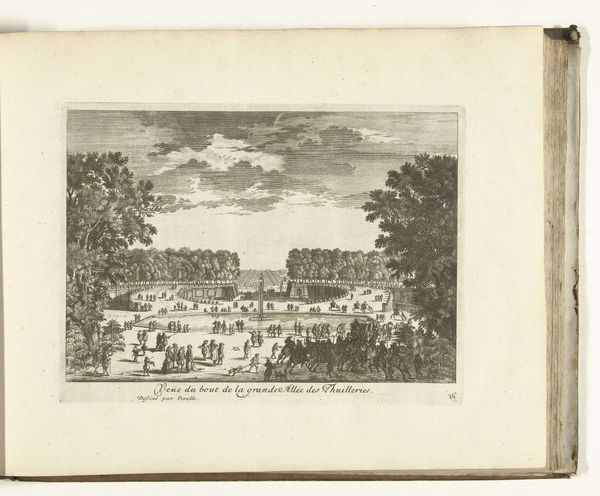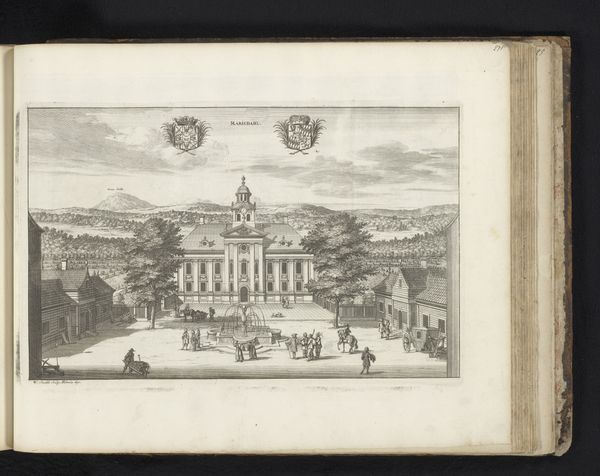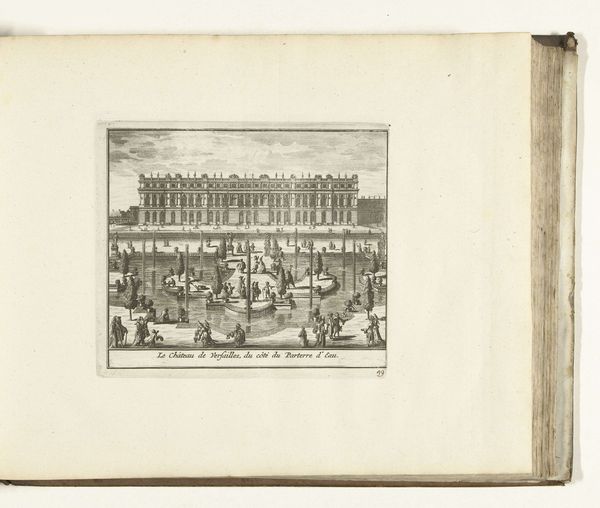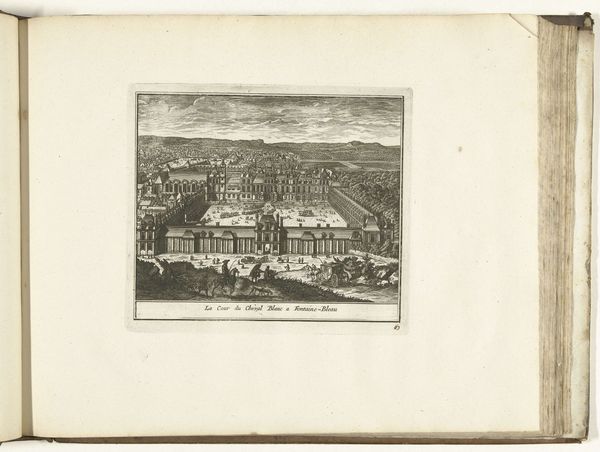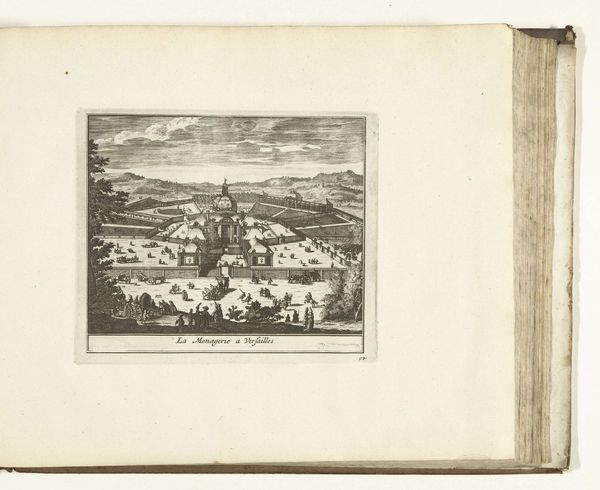
print, engraving, architecture
#
baroque
# print
#
landscape
#
cityscape
#
history-painting
#
engraving
#
architecture
Dimensions: height 173 mm, width 205 mm
Copyright: Rijks Museum: Open Domain
Editor: We’re looking at "Château de Clagny bij het paleis van Versailles," a 1726 print held at the Rijksmuseum, made via engraving. I am immediately drawn to the ordered arrangement of the gardens, a pattern that echoes in the facade of the chateau itself. What stands out to you from a formalist perspective? Curator: Immediately apparent is the use of line to delineate form, emphasizing architectural precision. Note the intricate interplay of orthogonal lines defining the building's structure against the softer curves of the landscape elements. What kind of rhythm does the artist use to create the perspectival illusion? Editor: I think the repeated forms, like the trees and window patterns, gradually diminish in size as they recede into the background. It almost feels mathematical, establishing the space! Curator: Precisely. Consider the deliberate organization of the visual elements; it's not just a depiction of reality but an orchestrated arrangement meant to convey certain ideological ideas. The clarity and meticulous execution are indicative of an intention beyond mere representation. What is communicated through such deliberate geometry? Editor: Control? Power? The imposing structure seems to dominate the natural landscape...a man-made statement through rigorous design. Curator: Yes, and how does the print medium itself contribute to this statement, compared to, say, a painting? Editor: Well, prints allowed for wider dissemination of such imagery. Maybe that's also about spreading that message of control, but to a larger audience. It’s like the form reinforces the function of this demonstration of visual and social power. Curator: An insightful observation. The interplay between medium and message enhances our formal understanding and helps contextualize function beyond aesthetics. Editor: Thanks, that really shifted how I understand this piece, noticing details beyond just the visual scene.
Comments
No comments
Be the first to comment and join the conversation on the ultimate creative platform.
